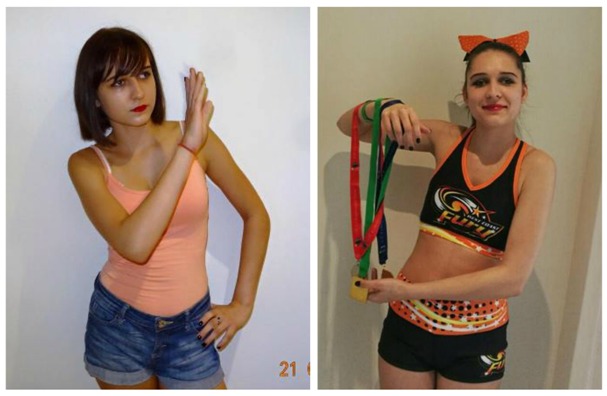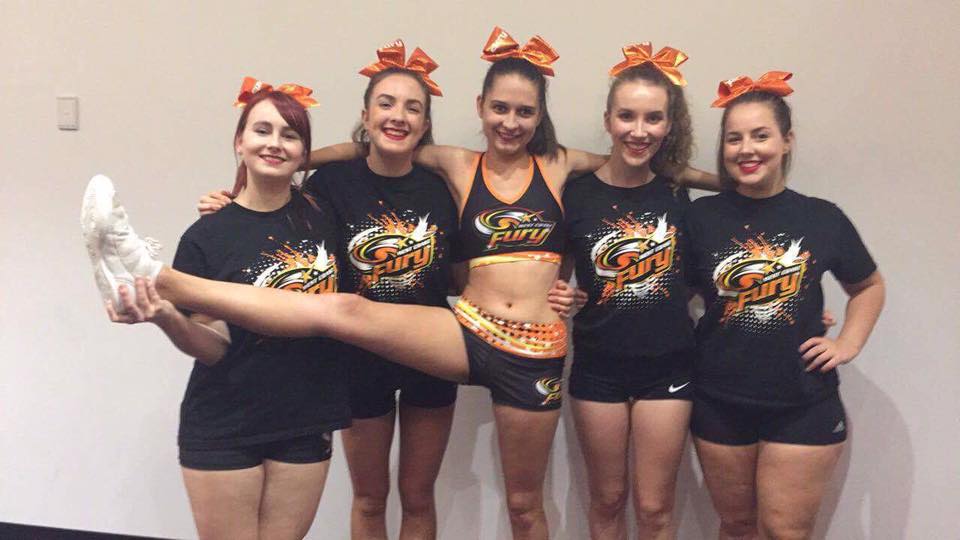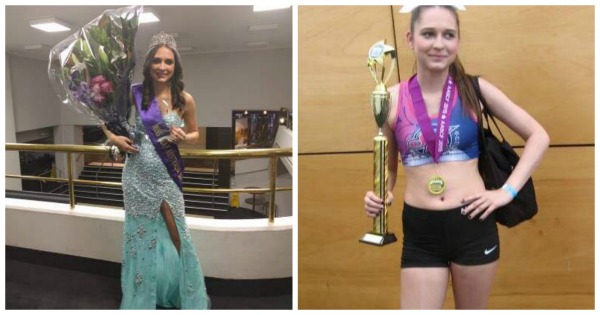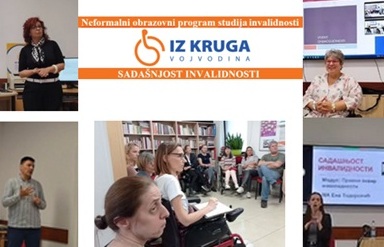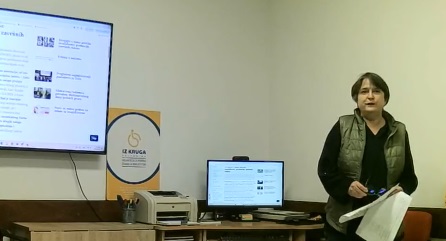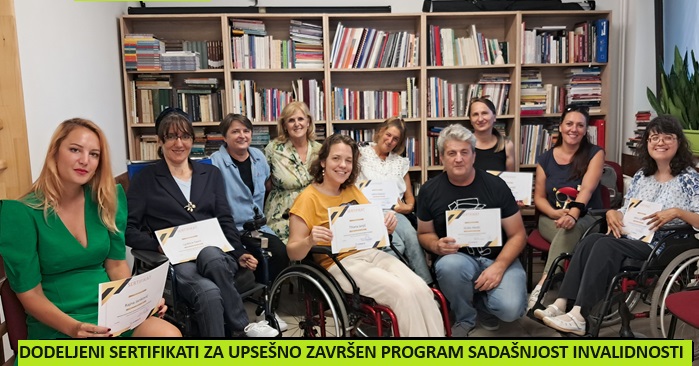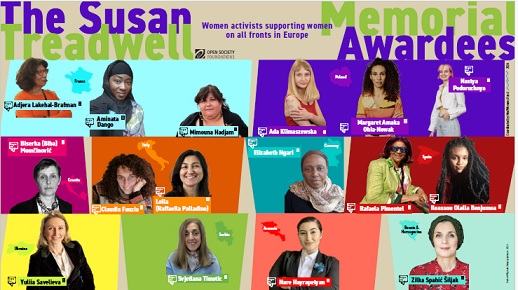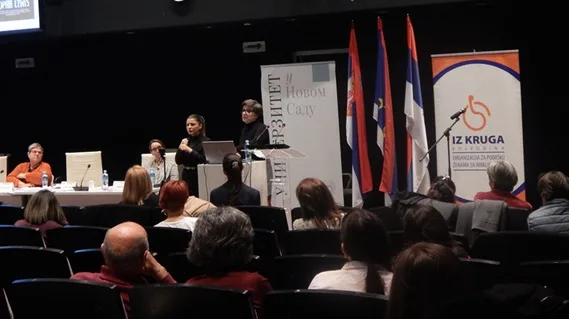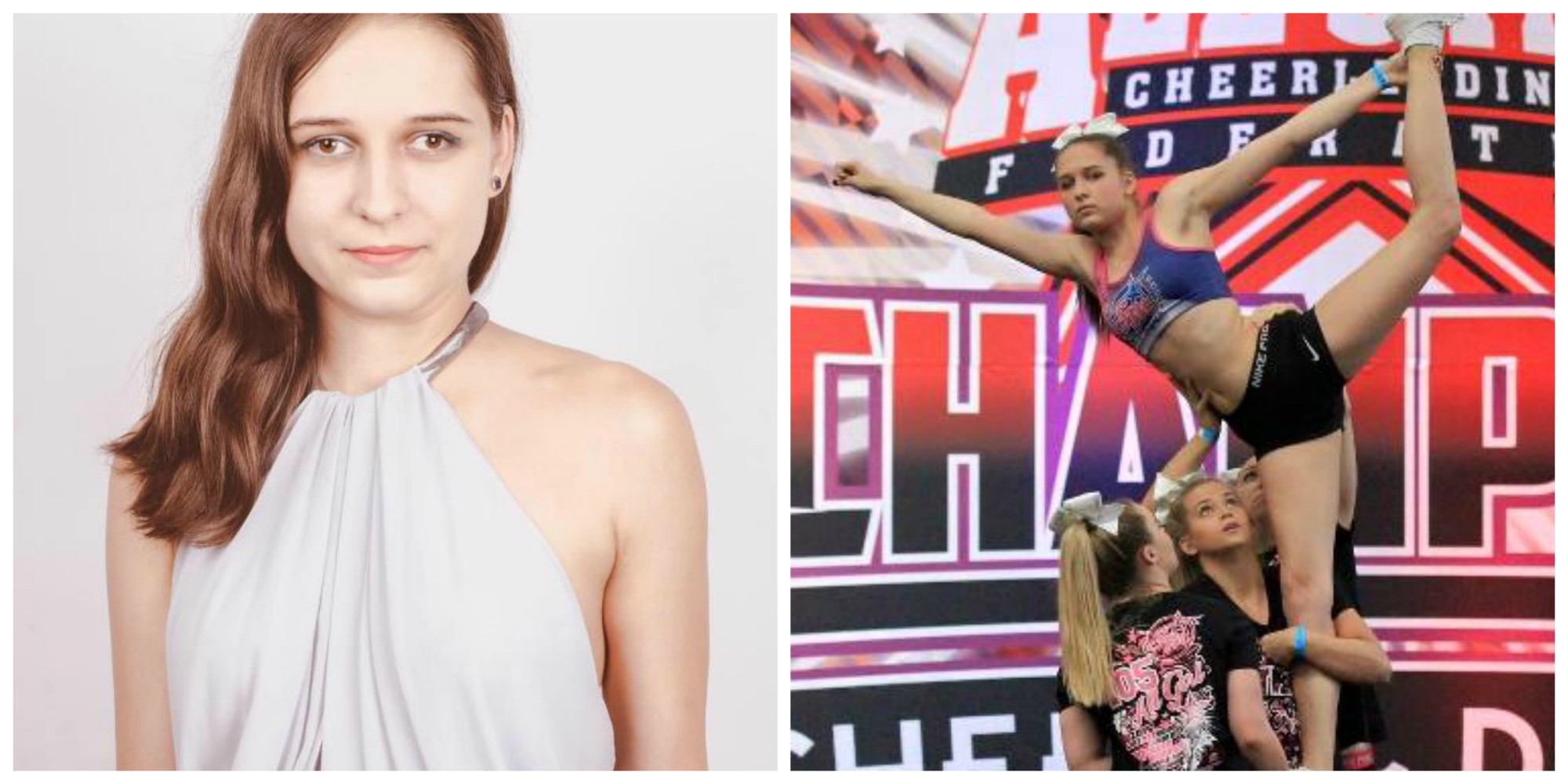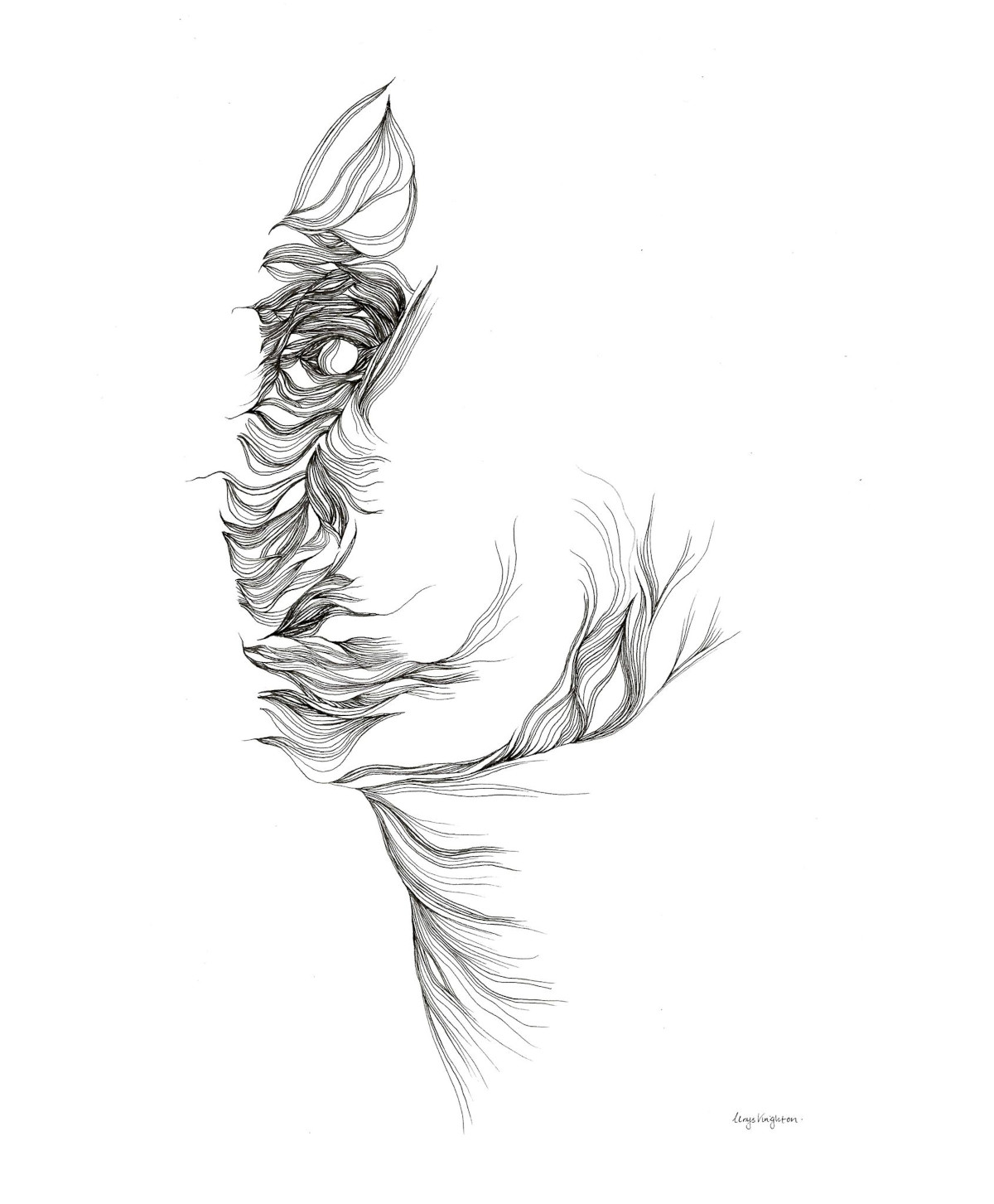Vanessa Vlajkovic is a young human rights activist and the first deafblind student at Edith Cowan University in Perth. She was recently named WA Young Person of the Year and Miss Deaf Australia. She’s fluent in 5 languages: English, Indonesian, Bosnian, Auslan (Australian Sign Language) and Braille. Cheerleading is her passion in life. According to some studies, it’s the most dangerous sport due to its combination of acrobatics and dance. Vanessa is a flyer in her team – the one that gets thrown up in the air. She’s fearless and determined. Activism is her second nature and she’s more than passionate in advocating for the deafblind community. Her vision of unprejudiced society is clear and she’s effectively breaking all the stereotypes by using her own example. We talked about her life experience, educational pathways, personal choices and challenges, fascinating systems of communication, activism ideas and plans, as well as her trip to Paris…
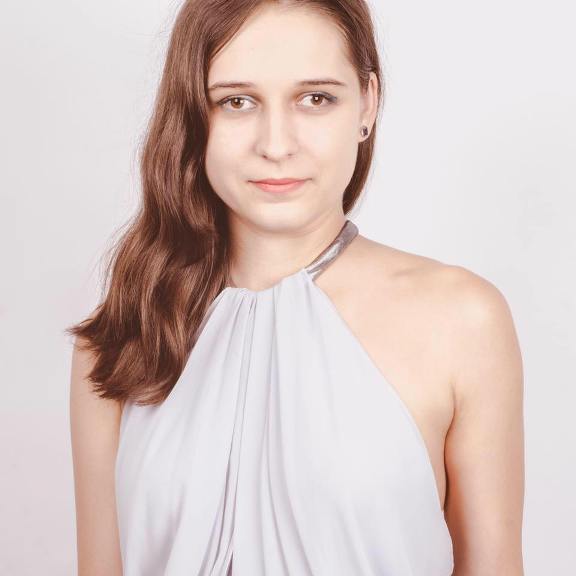
Name: Vanessa
My mother just likes the name Vanessa and yeah, it was simply a choice based on that, not because of anyone famous or anything significant like that.
Date of birth: 16/7/1997
Place: Perth, Western Australia.
Hobbies, interests: cheerleading, reading, writing, roller coasters, advocacy, traveling, being with my friends… what else can I say? I don’t actually have that many hobbies, haha. I used to do dancing and gymnastics but I don’t anymore.
Two adjectives that describe you the best: passionate and confident
Three verbs that have nothing to do with you: sitting (I really hate sitting still or just sitting for long periods) and thinking (If I start to think too much it drives me nuts, I hate thinking). I’m more spur-of-the-moment type of girl.
Childhood memories – what’s the very first thing you can remember?
I can’t remember much. I remember having chickenpox; that was awful. I’d describe it as a distant period, nothing stands out, it was just so long ago and I don’t have much to say about it. But I think I was a happy kid.
How would you describe your family?
Hmmm… We’re not a perfect family like out of Hollywood movies. But we make do. My brother Vedran is 26 so the age gap between him and I has made it difficult for us to be super close, but very recently our relationship took a new turn and we are pretty much best friends now. We’re more or less your typical family, we have our good moments and our bad. I have a lot of extended family, my mother has two sisters and her mother has three sisters so there are a great number of Cousins and aunties. My mum’s parents live in Perth with us but my dad’s mother lives in Sweden, (his father passed away before I was born) and my dad’s brother lives with his wife and children in Sweden too. So our family are a little divided and I’ve only seen the Sweden half a couple of times through my life, but we maintain an online relationship so that’s the best it can be.
What where the major challenges during your first days at school and how did you fit in?
I’m nearly 20 years old so reflecting on when I was 7 is a little challenging. Admittedly school was lonely, both primary and secondary. Heck, I don’t even have many friends at university either. I had good relationships with most of my teachers, but classmates were another story. I think there were definitely some happy days like on special occasions but about 95% of my whole education to date has been rather isolating. It’s just something that comes with being deafblind, and I accept it. I have a terrific group of friends, they just didn’t happen to go to school with me at the time but they’re here nonetheless and I’m grateful for it. But, yes, school days were not memories I’m too fond of and would never relive it. I am so glad to be done with it, it’s an enormous weight off my shoulders.
When you were a kid, what did you imagine your life would be like at your current age? What did you wanted to be when you grow up?
When I was a kid, I didn’t really think too much about the future, just lived in the moment. You know, just wanted to be a kid I guess. Throughout my childhood and teenage years, I changed my mind quite a few times about what I wanted to be when I was grown up. I remember when I was 13 and in year 7 at school, I said I wanted to live in Paris and be a teacher to blind children, teaching Braille. This is pretty funny considering I’m actually off to Paris in eight weeks to compete at Miss Deaf International – it is under totally different circumstances than I’d anticipated at that young age! I also said I wanted to be a model and I did pursue this, (Paris is your proof), but I sort of put it off – I kept being told by people that it was unrealistic and a competitive industry so I just dropped the idea. But it was always there, buried deep inside, and that’s why this trip is very special to me because my dream is coming true in a way. Having won Miss Deaf Australia was already something huge in itself, but to be flying to Paris to represent my country and live the dream I’ve had for 7 years is beyond incredible.
How did you choose your high school and further education plans?
I went to Mount Lawley Primary School here in Perth, so naturally I wanted to go to Mount Lawley Senior High School. At the time I had enough hearing so it didn’t bother me too much, going into a mainstream school. It was just convenient I suppose, it was close to home and my brother had gone there before me so you know, just a continuation thing really. Same goes for my university choice – Edith Cowan University shares some of its campus with my former high school so again it was just good in terms of location. There was nothing that particularly stood out about it, I just ended up there because I did, there’s not much else to say about it!
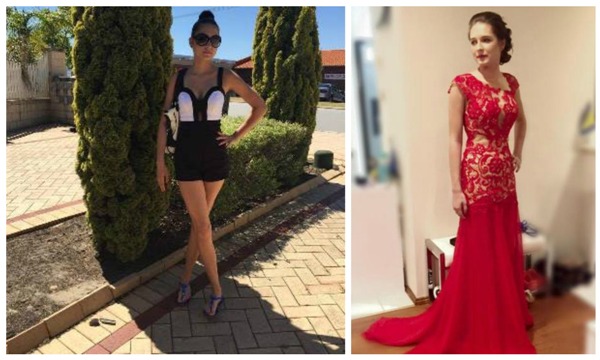
Did you learn Braille at school and what was it like? How would you explain Braille to someone from the other planet?
I started learning by the age of 4, omg it was 16 years ago – I can’t remember! Pretty sure I began learning in kindergarten but yeah, it really was ages ago and I’m unsure of all the details. Braille is a system, a language, used by those who are blind or have low vision – it is basically raised dots, each letter or number or character has its own unique symbol. It was created by Louis Braille, my hero, my inspiration. He was in fact a Frenchman, living from 1829-1852. If you want a more specific summary of what Braille is, you’ll have to Google it because I’m not really being super academic, mine is the vague version! But mostly I can just say it’s felt with the fingertips and it comes in two grades, grade 1 and grade 2. I use 2 because that’s the advanced type but I started off with 1.
How did you feel when your hearing has begun to deteriorate? When did you start learning sign language and could you tell us more about that process?
I was 7 when my hearing loss was diagnosed, I was too young to let it have much of an impact on me. I was equipped with hearing aids and they assisted me for 10 years, so I can’t say I felt much about it because it wasn’t world-ending or, you know, really horrible. I started to learn sign language just out of interest when I was 12, only the basics though. I picked up sign language through various means, not through a class or anything formal, just through interpreters and the Deaf community. I didn’t start using an interpreter until I was 15, so year 10 in school. I guess that was the year things officially changed because my hearing condition was re-diagnosed and I was proclaimed to have Auditory Neuropathy Spectrum Disorder – my auditory nerve had broken, for some reason. I didn’t really care to be honest, I know that may sound weird but it just didn’t upset me or anything. I was excited to learn my fifth language, Auslan (Australian Sign Language). It was the beginning of a journey, and I think, if I could see and hear 100% I wouldn’t be the person I am today. So, I think it was for the better really, because it made me a stronger, more confident, more determined woman than I might have otherwise been.
When did you decide to switch off from the hearing world and why? Who was the first person to know about that and what were their reactions like?
I decided to stop using hearing aids about 14 months ago. They weren’t helping me anymore, they were only good for environmental sounds but completely ineffective for communicating with people. I’m not sure who was the first person to know, it wasn’t like I had planned this big day where I was going to announce it or something, I just made the decision some random day and that was it. I just started telling everyone I’m finished with hearing aids, there were various reactions, some good some bad. The bad ones were mostly from my family, but they didn’t, and never will, understand the situation I was in so I accept their reaction and move on. It was my life, my choice, nobody was going to tell me what to do. So if someone didn’t approve tough luck.
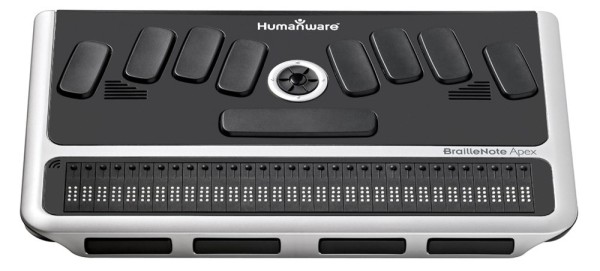 Tell us about assistive technologies and communication systems that you use now.
Tell us about assistive technologies and communication systems that you use now.

My primary source of communication is my BrailleNote Apex, I can’t live without this. It allows me to access the internet, SMS, emails, social media and everything else you could imagine just by being connected through bluetooth to iDevices – iPhone, iPad, iPod, all that. I use it for university and also because my family don’t sign I am forced to SMS with them for us to understand each other, so it’s really useful in many ways.
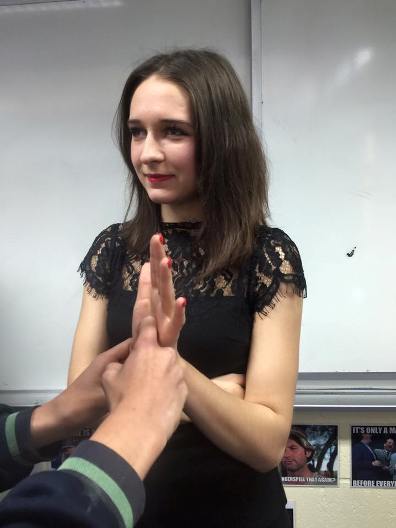 When you say sign language, most people think of its visual–gestural modality. But you actually use tactile signing – how does it work? Can everyone learn to sign like that?
When you say sign language, most people think of its visual–gestural modality. But you actually use tactile signing – how does it work? Can everyone learn to sign like that?

Yes indeed, everyone can learn to sign like that. It’s not difficult, it just requires practice, like most things in life. Technically tactile signing can mean one of two things – it can mean tactile fingerspelling or it can mean hand-over-hand signing. The latter I will only use if it’s dark or I’m extremely exhausted, however I use fingerspelling a LOT too, it just depends on the person doing it. I CAN see enough to just watch normal signing but the person has to be close to me as I only have 20% vision. Fingerspelling is where everything is spelt out on my hand, this is probably my preferred method for ALL people, but like I say it just depends on how well I understand the person – some I will understand perfectly and they use minimum to no tactile but others I’ll not understand at all and so we’ll use tactile. It’s all dependent on the individuals involved and the level of understanding that exists.
How did you become a cheerleader?
I mentioned earlier that I did gymnastics, so I found out about cheerleading through the club I did gymnastics with and when it was time for me to leave beams and bars behind me I found my new passion as a flyer.
Do you remember your first performance?
Yeah, I remember my first performance, it was a mixture of excitement and nervousness but ultimately the excitement won!
What three characteristics are most important for a cheerleader to posses?
YOU MUST SMILE. Permanently! You must be brave, it’s scary stuff! And lastly, you must trust your team. That’s the most important one.
Tell us something about your team and training and how do you prepare your performance?
Because I can’t hear, we worked out a way for my team to give me cues before they change positions – they squeeze 5- 6- 7- 8 on different body parts, arms, ankles, waist, anywhere, to prompt me. It’s easy and I’m the happiest girl alive when I’m in the air.
How does it feel to be a flier?
It’s exhilarating, there’s such an adrenaline rush at the competitions and the atmosphere is full of this kind of buzz and energetic vibe! There’s nothing quite like it, it’s a feeling of its own that belongs only to the cheer community. The thrill of showcasing your routine to the judges after so much effort has gone into it… it’s unreal.
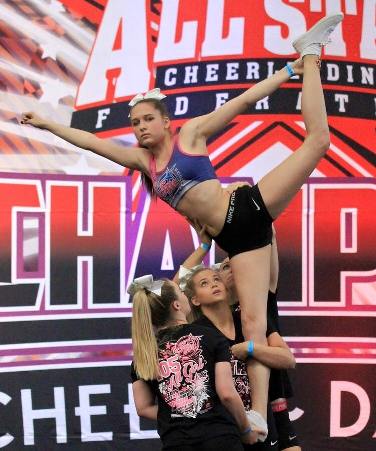 Your first year at the University. What were the major difficulties and how did you deal with it?
Your first year at the University. What were the major difficulties and how did you deal with it?

There were many difficulties. Being the first deafblind student at ECU (my university) meant that the staff had no prior experience with people like me. They were, in plain words, ignorant. They had to be taught. Alongside my deafblind consultant Melissa, I advocated tirelessly that first semester. If it wasn’t for Melissa and her support, I’m sure it would have been a lot worse. It was a very bumpy journey, I was learning to adapt to university life while simultaneously having to fight for my rights – it was unbelievably frustrating but somehow I made it through alive. I kept my chin up, I told myself I’d win and it would be okay. And sure enough, it was okay. To this day I still need to advocate for myself but university have learnt a little bit about how to make it smoother for me and they have improved their attitude in general. When something is happening for the first time that’s never happened before, it’s inevitable that there will be issues, because people don’t KNOW, they assume, they need to be educated, reminded, hassled, until they get it. It’s never easy but the end result is satisfactory.
What’s needed to be done for accessible education for deaf blind students (from your personal experience at the university)?
For an accessible education for a deafblind student, ever university must supply qualified interpreters and good note takers. Transcripts for all videos shown in classes must be provided to the student and to the interpreters. Braille MUST be supplied where necessary – wherever the student feels they need Braille, whether that be on toilet doors, in the lifts, or merely the cafe menus, it has to be done. It’s not a privilege, it’s a right. Every deafblind person will have different needs, but the key is to keep the student involved in decisions that are about them, and to get their full input. No excuses should be made whatsoever, whatever the student needs MUST be listened to carefully. It’s not a joke. It’s tertiary education, we need to be adults, be open-minded and be sensitive to the needs of others.
Do you have a personal assistant and sign language interpreter on classes?
Yes, I have two Auslan interpreters in every class at university. I also have what’s called a communication guide – that’s the correct name, not a personal assistant because that sounds like I’m royalty! The commguide gets me from class to class, helps me buy lunch and also play a important part in making sure the students have an accurate understanding of deafblindness when I am in group discussions.
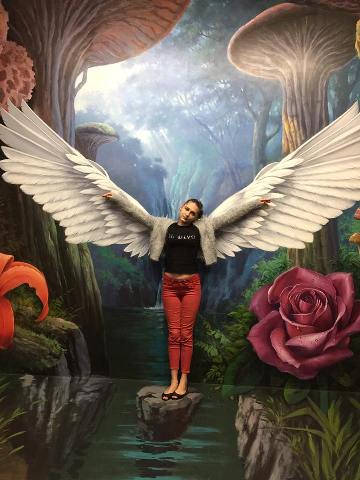 How did you become a human rights activist and what does it mean to you?
How did you become a human rights activist and what does it mean to you?

I became a human rights activist sort of naturally. I mean, it’s not like I dreamed about it or anything but it just became second nature to me. After everything I have been through, advocating for myself turned into advocating for everyone else in my position, because that’s just necessary. What does it mean to me? It means that, although I’m not curing cancer or ending wars, I’m still leaving a small mark. I’m influencing people to change perspectives on important things, I’m making a small change. That’s what it means. It makes me feel good to know that I have been productive with my life (even if it’s only just begun!) and to know that I’m on the path to success.
As an advocate for the deaf blind community, could you point out some main stereotypes and misconceptions about people with sensory disabilities?
People think we’re stupid. They think we are inferior because sign language means that deaf people often have poor English. This is a fact, I’m not trying to be offensive. Auslan, Australian Sign Language, has a fully different structure to English. There’s no grammar and the sentences are back to front, to put it simply. Having said that, people will often be judgemental and say that a deafblind individual has under-developed literacy skills. This is an insult to those people. I am not an example because my English is decent – Auslan isn’t my first language and as such I come across differently than someone who has been signing from birth. But it doesn’t mean that they are dumb, it doesn’t mean they aren’t capable of achieving things. It just means their brains interpret language in a slightly different way to a non-deafblind person. People need to be mindful of this and respect it.
Women and girls with disabilities often experience double discrimination. Are you dealing with gender stereotyping as well?
I’m not dealing with gender stereotyping. I’m lucky that I live in a country where that’s a little less in use. I feel as though deafblind men and boys suffer equally, I don’t think gender plays a huge role in this.
What tools and strategies do you prefer to use in breaking all these stereotypes?
I use my own successes, my achievements and positive experiences. I speak out about inequality whenever I feel it’s needed, and when I show people the long list of accomplishments, it makes them halt and reconsider their initial reaction to me. I use every imaginable example I can think of to tackle whichever issue I have at hand, and I do it with lots of fire – I make sure people can see I’m not a joke, I’m passionate about it and I will go to great lengths to ensure the right thing is done.
You’ve already been awarded for your work. Do you find a new source of motivation in that? Which one is the most important to you?
The most important award I’ve received so far is Western Australia’s Young Person of the Year, which I was awarded in November 2016. Closely behind that is the Miss Deaf Australia crown. Every award gives me more courage, more motivation, more confidence so that I can keep going and never give up. Each and every one of them boosts my belief in myself and helps to keep me positive and enthusiastic as I have things to look back on – there are currently 16 awards on my walls in my bedroom and just being surrounded by the proof of my accomplishments gives me hope that I can do even more.
Most important goals you’d like to achieve in your advocacy for deaf blind community?
Braille menus in all restaurants is my number one. Secondly, Braille information on airplanes, safety information etc, AND sign language videos for the same purpose, for each country. And I suppose the third thing is that I want to raise awareness about how deafblind people are different – I recently heard a shocking story from a friend about what happened to her, and she’s only deaf, not deafblind. I need to highlight the fact that we aren’t deaf and dumb, mute, stupid, alien or anything else. We’re human. We have lives, we have rights.
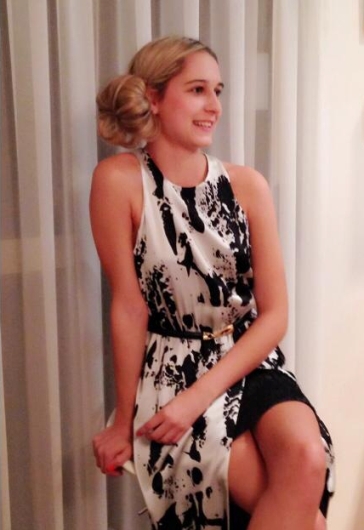 What do you prefer about journalism? Do you think that journalists have a significant role in raising awareness on disability rights?
What do you prefer about journalism? Do you think that journalists have a significant role in raising awareness on disability rights?

Well, it isn’t my dream career, that’s for sure. And no, to be honest I don’t believe journalists are major influences when it comes to raising awareness. Truthfully, I guess I do a bit of this and a bit of that – I wanted to study this degree because I love reading and writing, I have a natural curiosity about everything and it seemed like a practical choice for me. That may sound lame but really I can’t say becoming a journalist is something I dreamed about from a young age! It just matched my life at the time so I went with it. You know, sometimes there aren’t always clear reasons for why people do things, this is one of those times. Admittedly, media aren’t the best when it comes to getting facts straight and indeed a lot gets lost. Between all the debating. I’m convinced I will do a follow-up desire, but I’m unsure in what yet – I’d like a PhD of some sort. I actually also like presenting so I suppose being that kind of journalist appeals to me – speaking for news on TV or radio would be my thing. However, that’s not saying I’ll definitely do that. I repeat, it’s not a dream job so it is basically my go-to if modelling doesn’t take off for me.
Your origin is Bosnian. Did you ever visit Balkans and do you have desire to connect with disability-rights activist here?
I have been to Bosnia twice, in 2006 and 2011 but I sadly can’t say I enjoyed it. I’d be open to connecting with disability rights activists from ANYWHERE, the more people the more powerful the message will come across. So yes, I’d be willing to form relationships with people outside Australia if it means we will be heard and change can be made.
What would you write in a letter to 80-year-old-self?
I’m not actually sure! I don’t know what will happen between now and age 80!
I might say: Dear Vanessa, you shouldn’t have worried so much! You have made it to age 80 and you are fine, so you should have just taken it easy and stressed less. Nothing is ever as bad as it seems. You did good girl! Hahaha!
But I don’t know! It’s a tricky question.
Photo: Kayla Seidel and private archive
Video: Will Mattock
In Serbian: VANESA VLAJKOVIĆ: Imamo život, imamo prava
